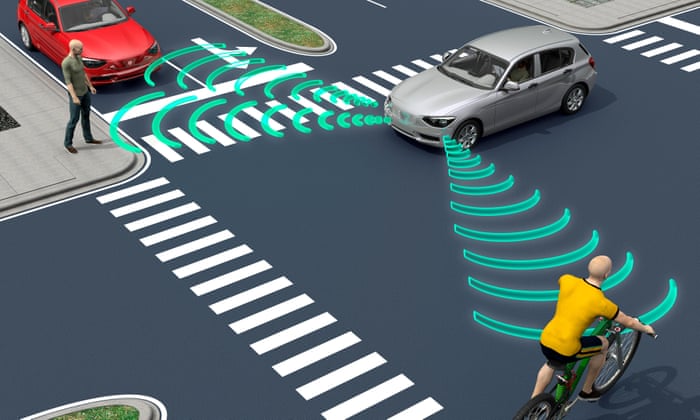Abstract:
IEEE Keywords
- Automobiles,
- Autonomous automobiles,
- Convolution,
- Artificial intelligence,
- Convolutional neural networks
Author Keywords
- Internet of Things,
- Autonomous car,
- Deep Learning,
- Convolutional Neural Network,
- Raspberry PI
Introduction
Great men said that it is better to prevent and prepare than to repent and repair. The current automobile safety techniques like ABS and airbags have reached a plateau. The technology is progressing and so is the mindset, the aim is not to survive a car accident but is to prevent it from happening. the world has come down such that we believe in the machines we make more than ourselves and this machine can prevent millions of deaths due to accidents and it would be called the self-driving car…
Result
A miniature version of a self-driving car has been implemented, which is capable of decision making with the help of Convolutional Neural Networks. The car was trained on a self-made track which was around 12 to 14 meters long. During the training phase, the car had achieved an accuracy of 88.6%, which can be improved further by hyperparameter tunning and more data collection. The car functioned very well for most for its journey but had difficulties when taking sharp turns, which was due to the limitation of the motor’s turning capabilities. The car had successfully mimicked the driving patterns within the scope of the dataset and would require more data accumulation for adjusting to new scenarios.
Conclusion
Artificial intelligence (deep learning) is one technology that would revolutionize the world as we know it and lead us headfirst into the future. One of the applications of AI and a tranche of Computer vision is the autonomous Driverless Cars. This robotic car might be today’s luxury but is surely tomorrow’s need. In this paper, we have presented a monocular vision-based self-driving car, in which an image input is taken through the camera, and a CNN model is used to take a decision accordingly. For a driverless car, Accuracy and efficiency are directly proportionate to the amount of training data and the quality of the object detection model. This concept calls for an advanced and safe future for all citizens in the field of transportation due to its ability to relay passengers or goods without human intervention.
About KSRA
The Kavian Scientific Research Association (KSRA) is a non-profit research organization to provide research / educational services in December 2013. The members of the community had formed a virtual group on the Viber social network. The core of the Kavian Scientific Association was formed with these members as founders. These individuals, led by Professor Siavosh Kaviani, decided to launch a scientific / research association with an emphasis on education.
KSRA research association, as a non-profit research firm, is committed to providing research services in the field of knowledge. The main beneficiaries of this association are public or private knowledge-based companies, students, researchers, researchers, professors, universities, and industrial and semi-industrial centers around the world.
Our main services Based on Education for all Spectrum people in the world. We want to make an integration between researches and educations. We believe education is the main right of Human beings. So our services should be concentrated on inclusive education.
The KSRA team partners with local under-served communities around the world to improve the access to and quality of knowledge based on education, amplify and augment learning programs where they exist, and create new opportunities for e-learning where traditional education systems are lacking or non-existent.
FULL Paper PDF file:
Deep Learning Techniques for Obstacle Detection and Avoidance in Driverless Cars
Bibliography
Authors
Year
2020
Title
Deep Learning Techniques for Obstacle Detection and Avoidance in Driverless Cars
Published in
2020 International Conference on Artificial Intelligence and Signal Processing (AISP)
Doi
10.1109/AISP48273.2020.9073155
PDF reference and original file: Click here


